Episode 14: Tech and Data Behind Your Next Trip
Travel is back — but it’s not the same. In this episode, we sit down with Greg Abbott, a veteran of the travel tech world with over three decades of experience, to talk about how the industry is evolving. From the rise of AI and real-time data to the promise (and pitfalls) of hyper-personalization, Greg walks us through the big shifts shaping how we move through the world. We talk about what’s working, what’s overhyped, and what the future might really look like for travelers and the businesses that serve them.
Key Takeaways
✓ Historical Context: Travel shifted from traditional agencies to digital platforms, driven by the internet and social media, making destinations more accessible but also raising issues like overtourism and sustainability.
✓ Current Landscape: AI, cloud computing, and real-time data are transforming travel, enabling more personalization and operational efficiency. However, true personalization is limited by data silos, and security remains a top industry concern.
✓ Anticipated Trends: Expect greater use of generative AI, cloud-native solutions, and a stronger focus on cybersecurity. Industry-wide data standards may require regulation, and sustainability will remain a key challenge.
Transcript
Anni Tabagua: Welcome back to BizTech Forward. I'm your host, Anni, and today we're talking about something that affects many of us: travel. The way we experience travel is shifting rapidly these days. Travelers expect more personalization and convenience.
But delivering on those expectations is a whole different story. To discuss all of that, I'm joined by Greg Abbott, head of DataArt's Travel, Transportation, and Hospitality practice. Hi, Greg. So happy to have you here.
Greg Abbott: Good afternoon, Anni. It's a pleasure to be here. Thanks for taking the time to talk with me today.
Anni Tabagua: Just a couple of words about our guest today. Greg has over 30 years of experience in travel technology, working with companies of all sizes, from startups to large enterprises. Throughout his career, he's been passionate about using technology to bring real business results. For the past 15 years, Greg has been with DataArt, where he founded and now leads the Travel, Transportation, and Hospitality practice.
Again, Greg, welcome to the show. So happy to have you here. You know, 30 years is a long time.
Greg Abbott: It sounds like an eternity. But, you know, they say when you find something you love to do, you'll never work a day in your life. And I love what I do.
Anni Tabagua: Oh, wow. You're one of those people who actually found what they love.
Greg Abbott: Yeah, I got hooked on travel many years ago. When I was at university, I worked at one of those old travel agencies, you know, with the clocks from all the different time zones on the wall. I got a job there while studying, which thrilled me.
What travel does, how it impacts people's perspectives, the way that when they travel, they see the world differently, they see their own home differently, and the exchange of ideas. It’s really a paradigm shift for many people. I noticed that when people went to study abroad for a year at university, they would come back with changed interests and what they wanted to be when they returned. All of those things changed. I love how travel impacts people.
Of course, the internet was born at that time, which changed how people interact with travel and how they shop, book, and purchase. So, yeah, I'm hooked.
Anni Tabagua: Greg, did you also start traveling pretty early, like at university?
Greg Abbott: Of course. Back then, they had these things called perks for agents so that you could take a trip for next to nothing. I flew to Tahiti for about $99 round-trip. That was my sophomore year, spring break. I went down for two weeks, and from then on, I started traveling as often as possible. Of course, you have work and school, but in between, I got away as quickly as I could.
Anni Tabagua: Wow. That was 30 years ago, and you still love traveling. It has changed so much that it’s actually insane.
Greg Abbott: It really has. Social media, for example, has greatly impacted people discovering new places. It gets people excited about exploration, but it also makes the world feel a lot smaller. Of course, there are negative impacts, like overtourism, and the challenges we have around climate change, sustainability, and protecting heritage and culture – Italy, for example, is really struggling with this. Like any good thing, it can be spoiled, so it’s up to us as conscientious travelers to take care of all the things we touch along the way.
Anni Tabagua: Right. Greg, you already mentioned so many things I want to discuss, and I have so many questions for you. But just to start with the big picture, so many things have happened in travel. Don’t even get us started on the pandemic. That could be a whole podcast series. But I read recently that global air traffic is nearly back to pre-pandemic levels. So, I’m interested in your perspective: what is happening in travel tech today?
Greg Abbott: It’s an exciting time to be in travel technology. COVID-19 impacted a lot of industries, but travel is probably the most deeply. It caused a bit of a reset and a reboot in many ways. While the industry lacked the funds to digitalize when everyone else was going through digital transformation, travel became a bit of a laggard in digital adoption because of that.
Now, it’s trying to catch up. What was once a leading technology sector is now behind in some ways, but it’s still an exciting time. The age of AI is upon us, and generative AI is going to impact the industry. We’re closer than ever to real personalization-personalized offers and experiences. I believe agent AI will help us get there, but there’s still work to do.
When I say workflow, I mean the workforce and how people start to use agent AI to their advantage. First, you’ll see productivity gains, then commercial gains since most businesses are for-profit and want to increase their margins. Ultimately, these changes will benefit people working in travel, the businesses offering travel services, and, eventually, the end traveler.
Anni Tabagua: Since you mentioned personalization, is it tricky to get it right? Can you share an example of a company that nailed personalization?
Greg Abbott: Well, my bar is pretty high for what personalization means. I don't know if anyone has truly gotten it right yet because putting all the pieces of a trip together is complex. There's the exploration and anticipation of trip planning, and many startups, some of which have failed to conquer this. There are different types of travel – business and leisure, with very different needs.
Then there's the actual trip, usually involving transportation. Loyalty programs can help, but you can't always travel with the same provider, so it's hard to make the experience personal if you change providers. Once you're at your destination, there are new experiences. Do those operators know who you are or what you've done before without sharing that information?
So, for me, the bar is high. I think it's connected to the idea of universal digital IDs, where travelers can share their preferences, payment methods, and loyalty information. The EU, for example, is working on a digital wallet mandate for 2026. The pieces are coming together, but we still have a long way to go to reach the level of personalization I'd like to see.
Anni Tabagua: Wow. Even hearing about it is overwhelming. Is there a limit to how fast things can go? Are we heading toward a world where every travel experience is hyper-personalized, or is there a limit?
Greg Abbott: That's a good question. There are limits. Some are practical, like spatial and geographic limitations, and others are about security and safety. You can't take those for granted, especially in some parts of the world. So, there are boundaries to hyper-personalized experiences.
On the other hand, the metaverse could offer a different set of limits, with virtual destination tours and simulated experiences. Personally, I like to put my hands and feet in the water, but for some, virtual experiences might be enough.
Anni Tabagua: Since we touched on AI, I have to ask: AI is everywhere, but is all of it real? How do I know what's actually delivering results and what's just marketing? What do you think about that?
Greg Abbott: Absolutely. There's the Gartner hype cycle – AI hit its peak, and now we're probably in the trough of disillusionment, moving toward normalization. Last year, only about 4% of AI proof of concepts made it to production; this year, it's up to 11%. So, we're making progress.
Much of the work has been behind the scenes, democratizing data to power the models needed for offerings and personalization. You're probably seeing AI in revenue management and predictive analytics around pricing. For example, you might see a price change in real time when shopping for travel – companies are maximizing their revenue.
AI and machine learning are already touching people in revenue management, retail, and advertising. It's becoming part of the fabric of daily life, and as we democratize data and build modern data platforms, it will unlock advanced AI tools. Things are moving fast, and companies are racing to adopt the right tools and overhaul their organizations. We call it the “AI-fication” of everything.
Anni Tabagua: I was just about to ask about data, which goes hand in hand with AI and feels like the key. Is data everything in travel as well?
Greg Abbott: Yes. Obviously, there are tangible goods and services, but data is essential in terms of facilitating operations, predicting needs, and providing services. Our industry has had a lot of walled gardens-regulatory issues, old silos, and business models built around proprietary data. Companies are reluctant to give up that data.
Unlocking data and making it meaningful – not just opening it up but connecting it to business outcomes – is where many companies need help. We offer services around data quality, governance, and prioritizing what matters. Legacy systems can be obsolete in just a few years if not built around new use cases, so companies face real challenges in meaningfully unlocking data.
Anni Tabagua: So, data-wise, there's still a long way to go, right? Or is the industry keeping up?
Greg Abbott: Our industry is a laggard, so I feel like we're slow, but we'll be forced to keep up. Consumers are ever more demanding, pushing travel companies to keep up. Economic changes also impact travel, budgets tighten, and travel is one of the first things to be cut. But it's also the first thing people want to return to. After COVID, there was an explosion of travel because people just wanted to get out and explore. So, while there are challenges, there's also a lot of excitement.
Anni Tabagua: Greg, you describe the innate need for travel so eloquently that I imagine my next trip as I listen to you.
Greg Abbott: Yes.
Anni Tabagua: Just to reiterate for our listeners, if we had to pick the biggest trends right now in travel, would you say AI and data, or would you also mention cloud?
Greg Abbott: Cloud is sort of the baseline these days. Cloud solutions and hyperscalers enable the democratization of data. It's like building blocks: you want to be cloud-native, unlock your data, and then use generative AI tools. Getting your house in order, technology, business operations, and security are table stakes for unlocking the future of travel.
Anni Tabagua: Greg, do you think there will always be – oh, sorry, go ahead.
Greg Abbott: Security. I mentioned it quickly, but it's one of the key trends. Alongside cloud, AI, and data, security is a major concern. It's often not talked about because it's less exciting, but a breach is a very expensive mistake when something goes wrong. So, security will continue to be a trend in most industries.
Anni Tabagua: That's true. I never really see security in headlines. It's always AI and data.
Greg Abbott: Yes, you put your credit card or bank account out there to pay for something and just hope it stays secure – all your personal information, passport number, identification, and PII.
Anni Tabagua: One of my next questions was whether there's something the industry should pay more attention to or something less talked about that deserves more attention. So your answer would be security, right?
Greg Abbott: Yes. If you ask CTOs and CIOs, security is almost always in the top two or three concerns. It's talked about internally, just not in the trades unless there's an incident. It's like plumbing – no one talks about it until something goes wrong. But try living in a house without plumbing – it's no fun. That's how I see security. But ask your question again, and I'll try to take it from a different angle.
Anni Tabagua: Maybe something the industry should pay more attention to, or something not talked about enough – from all the conferences you attend and clients you speak to, what are you hearing?
Greg Abbott: This is more personal, but I think overtourism and sustainability are connected. I think about the impact of all the jets flying around and the carbon footprint. Sustainability was a hot topic a couple of years ago, but it's actually a commercial issue. It takes a lot of money to be sustainably responsible. Is there a way for luxury and sustainability to coexist? Cruises, for example, are luxurious but not very sustainable, even though the industry tries to be efficient.
There's a financial balance between what we need to do and what people are willing to pay for. When I buy a ticket, I'm asked if I want to pay extra to offset my carbon footprint, but if my company doesn't reimburse it, it comes out of my own pocket. So, there's a balance between sustainability and cost. I wish it was talked about more, but it's a challenge.
Even the technology we use uses machines running large language models with a carbon footprint. So, maybe it’ll never be fully solved, but I want us to be conscious of it and continue to be conscientious travelers, thinking about both climate and sustainability.
Anni Tabagua: I’m glad you brought this up. Sustainability is complicated – there’s no quick fix.
Greg Abbott: Exactly.
Anni Tabagua: On the flip side, are you hearing about anything at conferences or from clients that's overhyped – something everyone thinks will change the industry but probably won’t?
Greg Abbott: I’ll probably get in trouble for saying this, but the idea that there will be standards in our industry without regulation. Unless it's regulated, I don't believe we’ll ever have a unified way of exchanging data. There are groups advocating for standards, but even when standards exist, companies have the option to follow them or not. That makes it difficult to create a unified environment for data exchange, and it just means more work for everyone. I hope I'm proven wrong, but I’m skeptical.
Anni Tabagua: Would you say that’s an unpopular opinion? Because my next question was, do you have any unpopular opinions on the topic?
Greg Abbott: I think it might be unpopular, or maybe just realistic. I believe that unless a government authority comes in and enforces standards, companies won’t adopt them on their own. I’m not saying we should regulate the industry, but in my experience, standards only work when they’re enforced by regulation. Since travel is mostly unregulated, I don’t think standards will really take hold.
Anni Tabagua: Greg, thank you so much for this conversation. I really enjoyed it. You’re wonderful.
Greg Abbott: Thank you, Anni. It was such a pleasure. Your questions made me think about things I haven’t considered before, so I appreciate the challenge. I really enjoyed it and hope it’s useful.
Anni Tabagua: Thank you so much. That’s it for today. Thank you to our listeners. If you enjoyed this episode, please subscribe, rate, and share. We always want to hear from you- where do you think travel is headed? Tell us at biztechforward@dataart.com. We’ll see you next time. Thanks for tuning in to BizTech Forward.
If you enjoyed the podcast, please subscribe and share to help us reach more listeners. Thank you for being part of the conversation. See you next time.
About the Guest
Greg Abbott is a recognized travel industry expert with 15+ years of expertise in retail travel, travel technology, and tour operations. Greg joined DataArt in 2010 as a Senior Vice President in charge of Travel, Transportation, and Hospitality practice, having relocated from Europe, where he was most recently Commercial Officer and Product Director at Nexgen Travel Distribution.
His experience extends to domestic and international travel organizations, product direction, development & distribution, and content management systems. He has established an extensive C-level contact base through his business development, sales retention, and contracting skills. Before Nexgen, Greg worked as an Investment Advisor at Jefferson Pilot Financial and was Sales and Product Director at STA Travel, a travel organization for students and youth.
Greg received a BA & AS from the University of California at Berkeley, USA. He speaks fluent French, is proficient in German and Spanish, and competes in marathons and triathlons for recreation.
Greg is a regular media commentator on travel technology and has been quoted in PhocusWire, Travelport, Breaking Travel News, Buying Business Travel, Travolution, Hotel Resource, Bob's Guide, Mobile Marketer, and numerous other news outlets.
Check Out All of Our Episodes
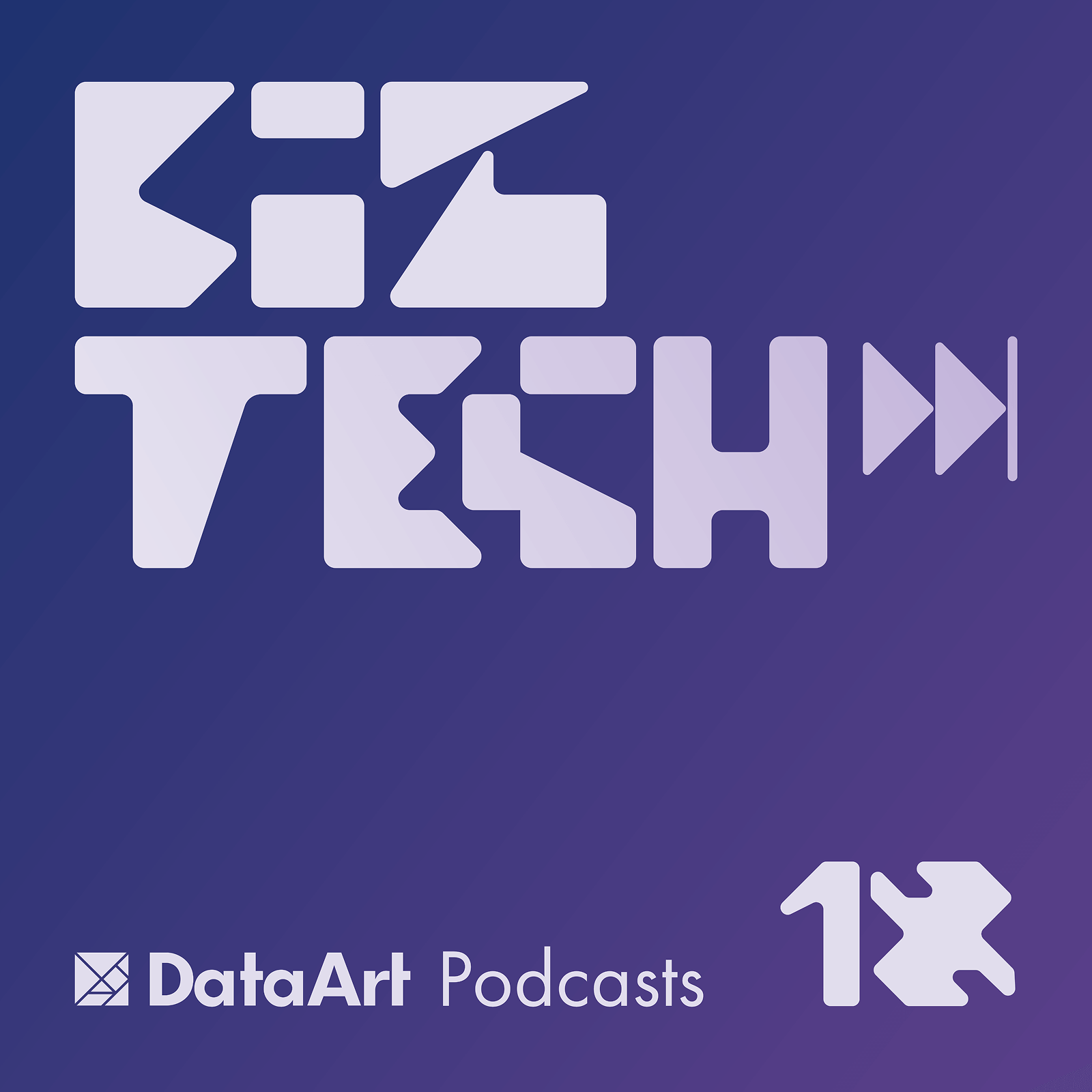
AI is supposed to be revolutionizing retail. Personalized recommendations, seamless checkout, virtual try-ons — the whole pitch. But if the technology is so good, why are physical stores still packed?

In this episode, Anni sits down with Alistair Wandesforde, SVP at DataArt, to see what companies say about their AI capabilities and what's really happening on the ground.

Season 2's most controversial moments! Eight tech leaders share their unpopular opinions on AI, recruitment, learning culture, market competition, and more.

We wrap up Season 2 with episodes 13-16! Featuring Doron Fagelson's fascinating look at how data is transforming art commerce, Greg Abbott's insights on the tech behind your next trip, Olesya Khokhulia on enterprise partnerships beyond just delivery, and Alexey Utkin's brutally honest conversation about data reality.

Join host Anni Tabagua for a Season 2 recap covering episodes 9-12! Featuring discussions on evolving client expectations, scaling learning culture, Latin America's tech boom, and the current state of tech talent.
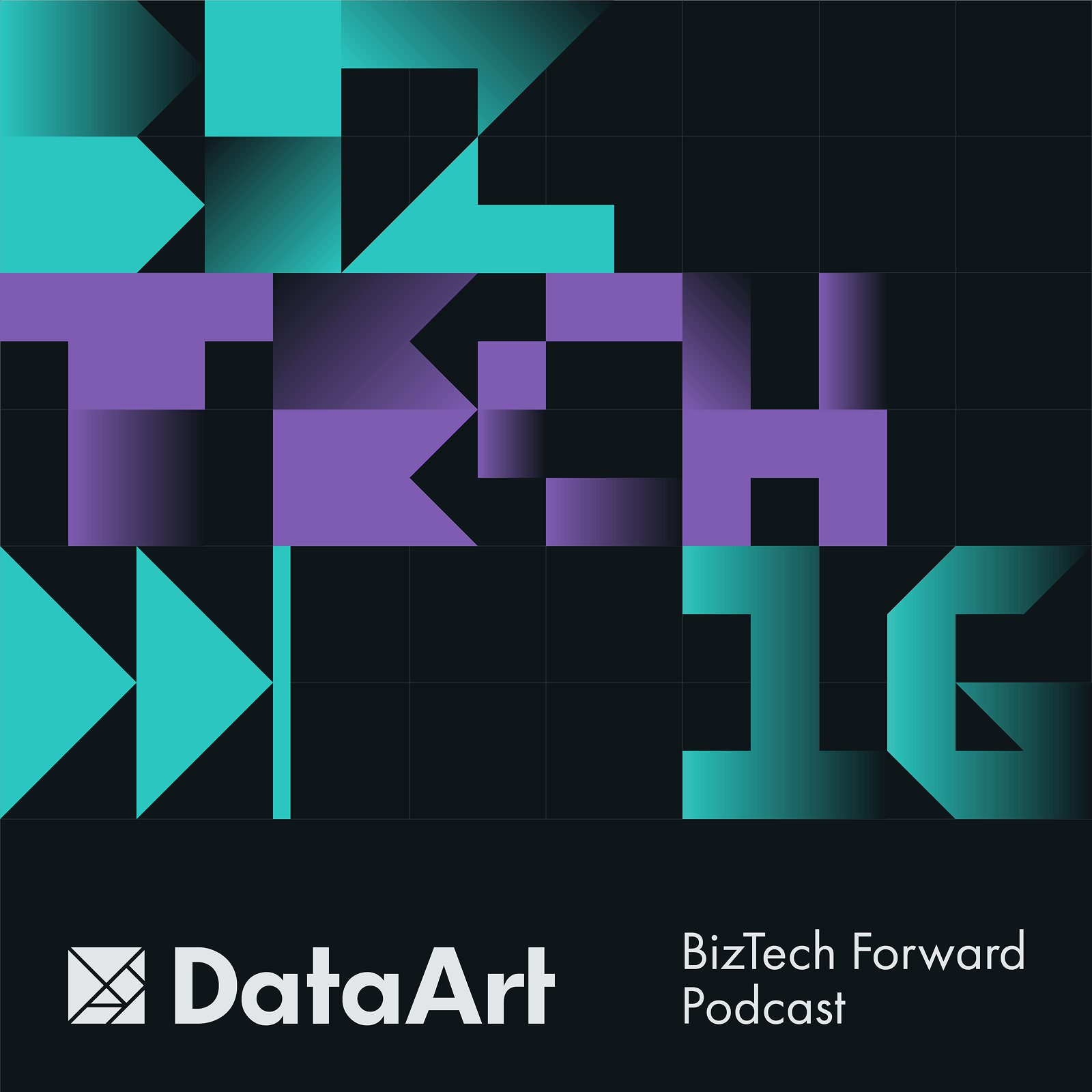
In this episode, Anni sits down with Alexey Utkin, Head of Data and Analytics Lab at DataArt, for a candid conversation about what’s really going on in the world of data.
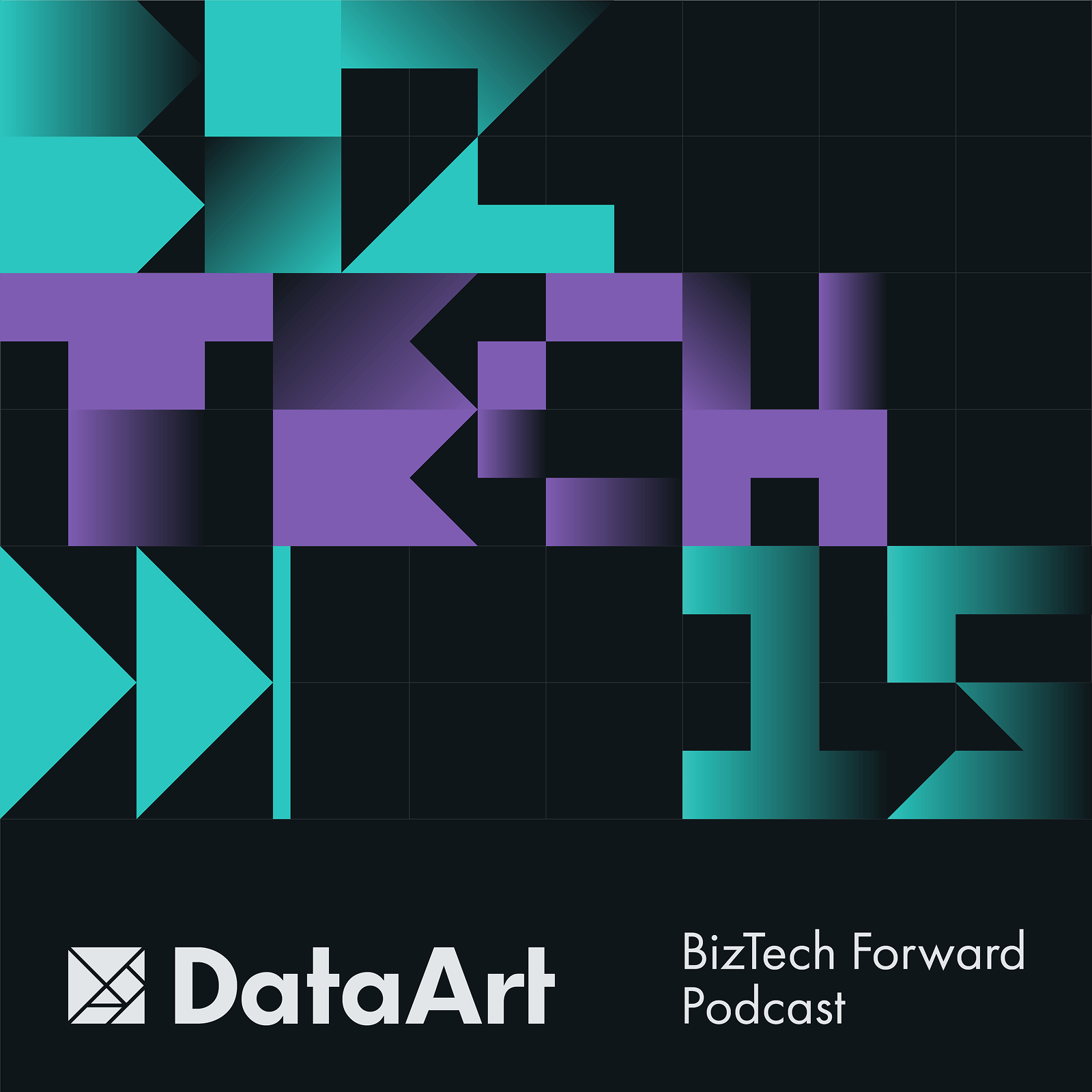
In this episode, Anni speaks with Olesya Khokhulia, VP of Global Enterprise Accounts at DataArt, about the evolution of client relationships, the quiet signals that build trust, and what it takes to stay relevant in an environment where expectations are always shifting.
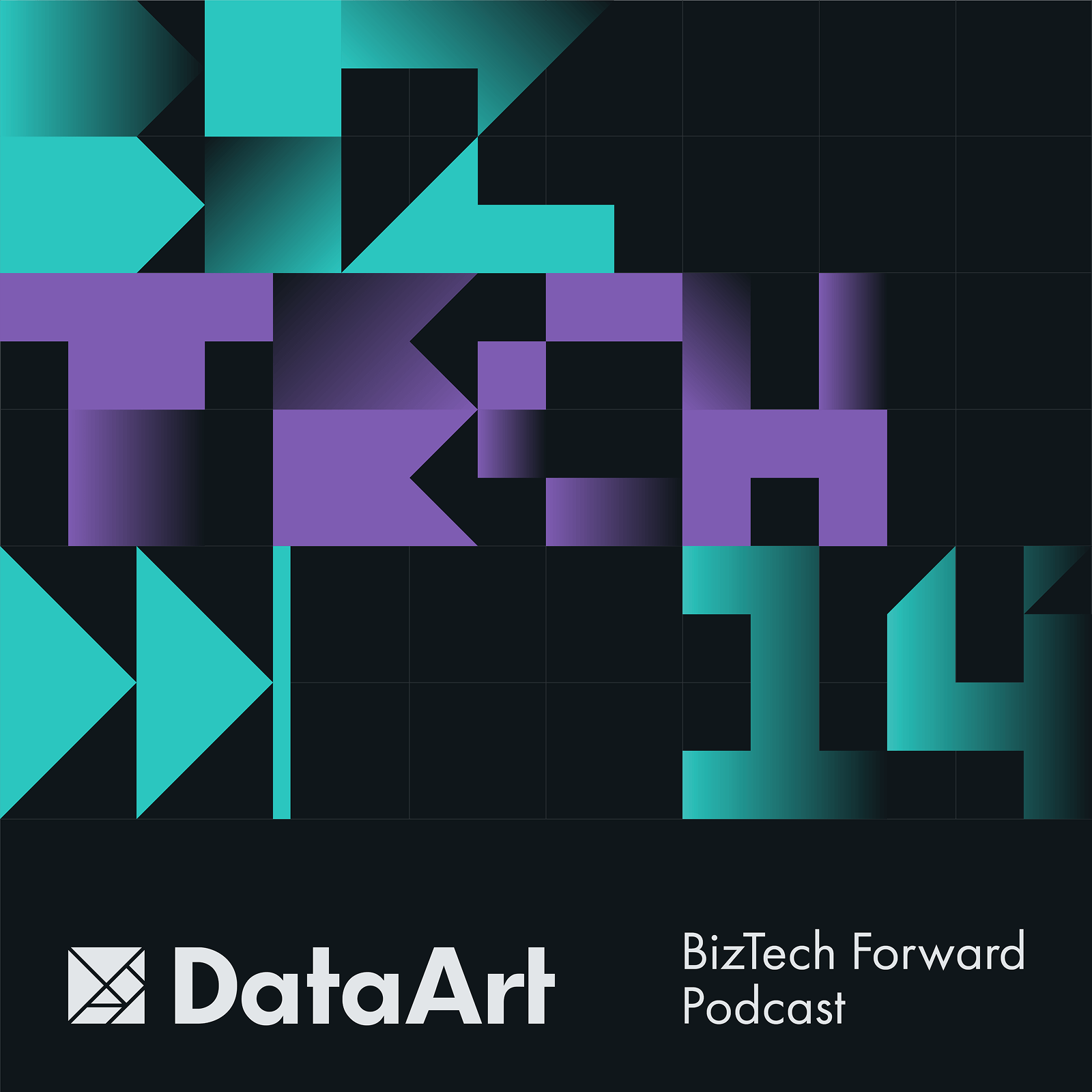
Travel is back — but it’s not the same. In this episode, we sit down with Greg Abbott, a veteran of the travel tech world with over three decades of experience, to talk about how the industry is evolving.

From ancient artifacts to AI-curated collections—art is evolving, and fast. In this episode, host Anni chats with Doron Fagelson, SVP of Media & Entertainment at DataArt, to explore how technology is transforming the art world, from online marketplaces to data-driven personalization and virtual galleries.

In this episode, host Anni chats with Julia Zavileyskaya, Chief People Officer at DataArt, about the biggest hiring trends, AI’s role in recruitment, and what really keeps employees engaged." Please find the episode's cover attached.
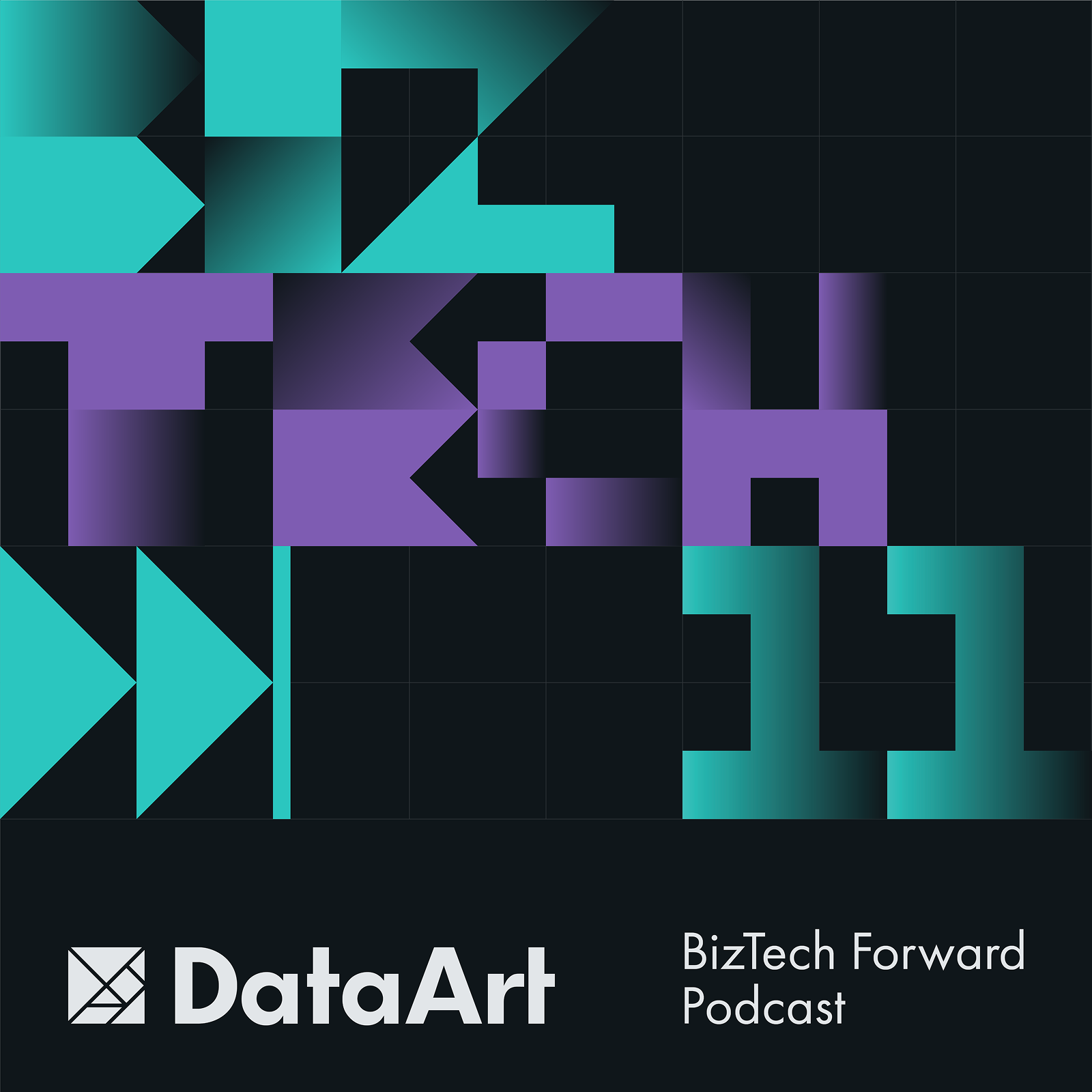
In this episode, Anni sits down with Marcos Mauro to discuss what’s fueling Latin America’s tech boom, how businesses and clients are adapting, and why it’s more than just an emerging market — it’s a global leader in the making.
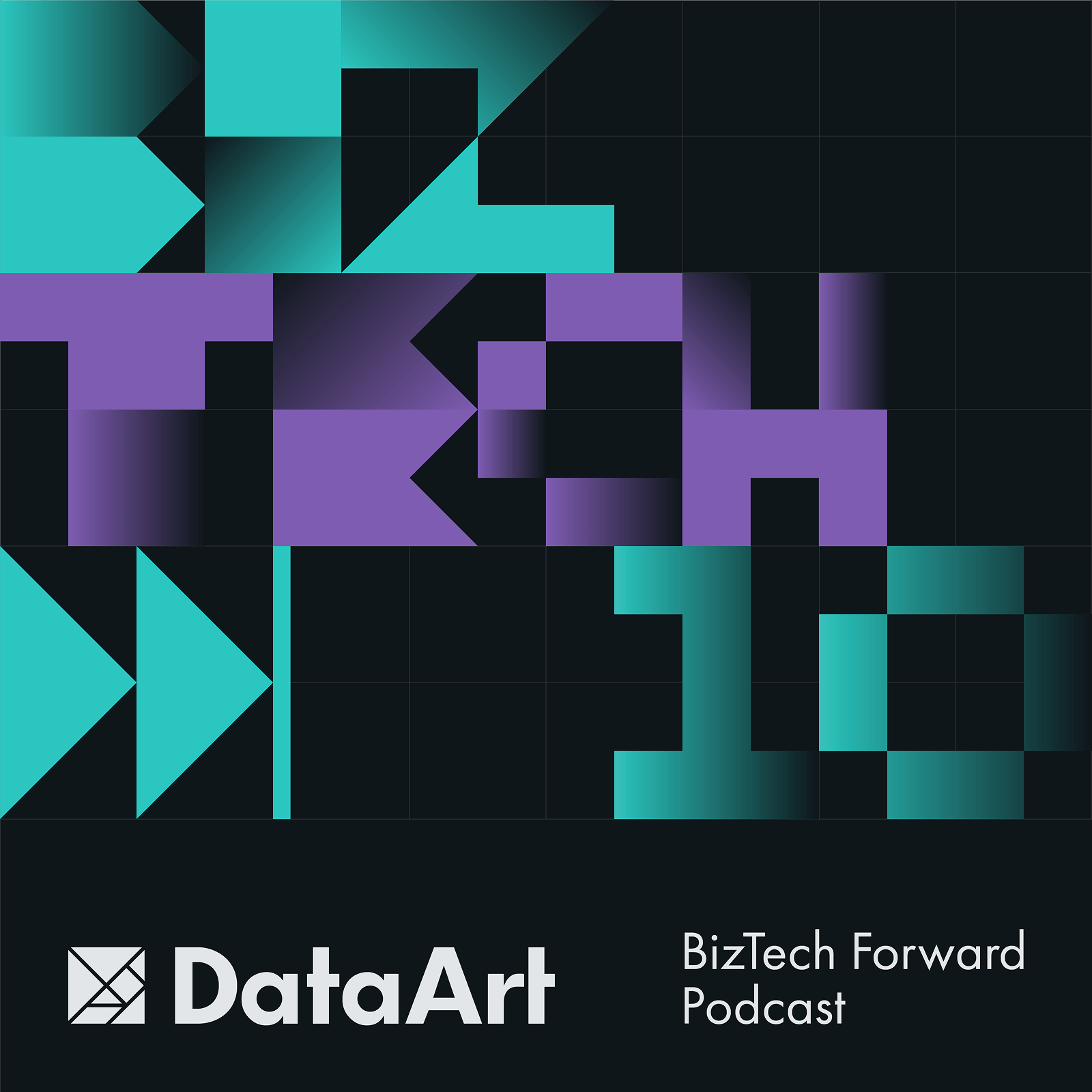
In this episode of BizTech Forward, Anni chats with Maryna Melink, Head of Learning and Development at DataArt, about how companies can create a culture of continuous learning, scale it across thousands of people, and deliver real business value.
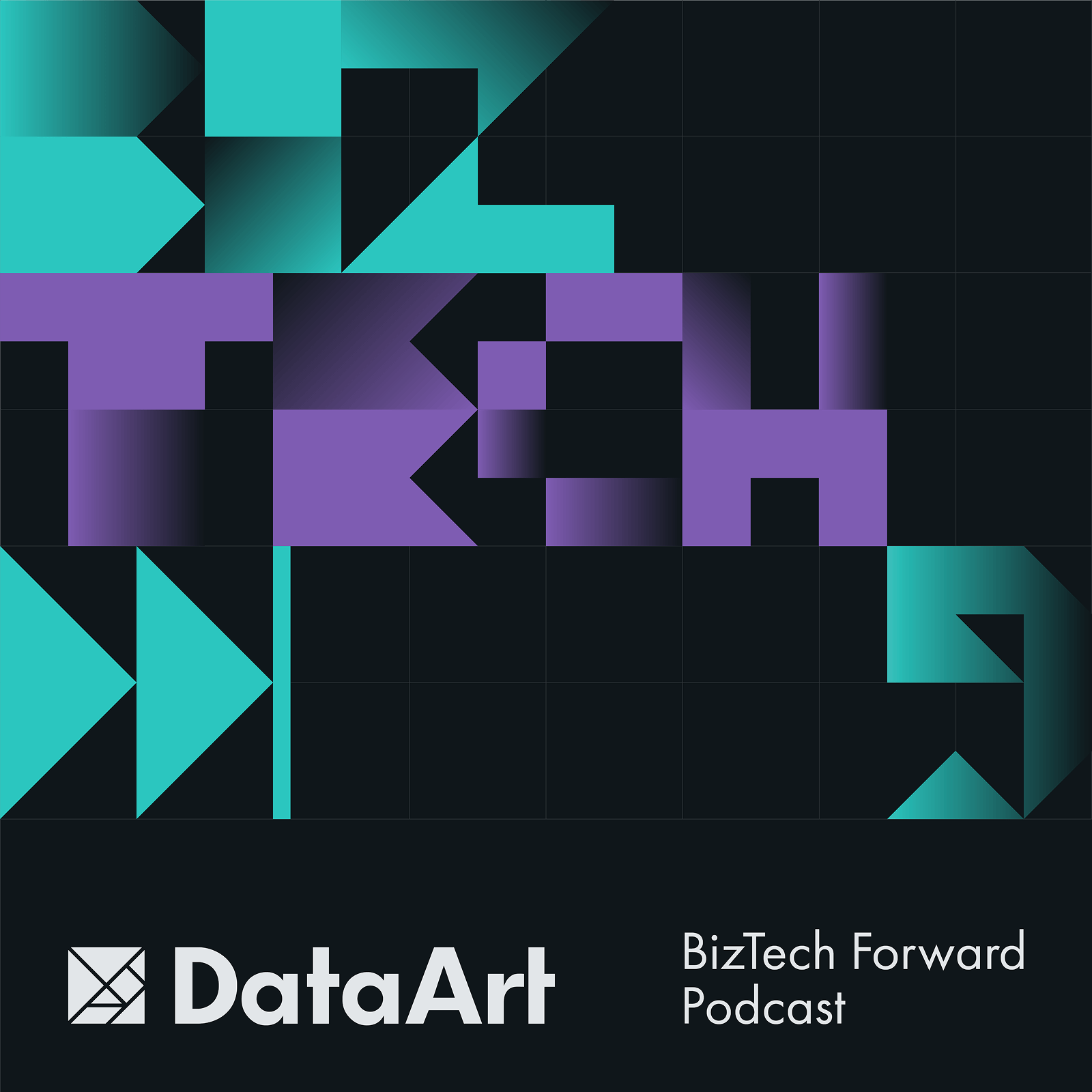
In this episode of BizTech Forward, Anni sits down with Mike Peterson, Advisory CTO / CIO, Mentor, and Coach, who discusses how client expectations from IT vendors have evolved over the past decade, what clients miss from the ‘old days,’ and how vendors can stay ahead in an ever-changing tech landscape.

This is a bonus episode of BizTech Forward: Season One Recap. Host Anni takes you through the eight episodes of the debut season, highlighting some of the best moments and setting the stage for season two!
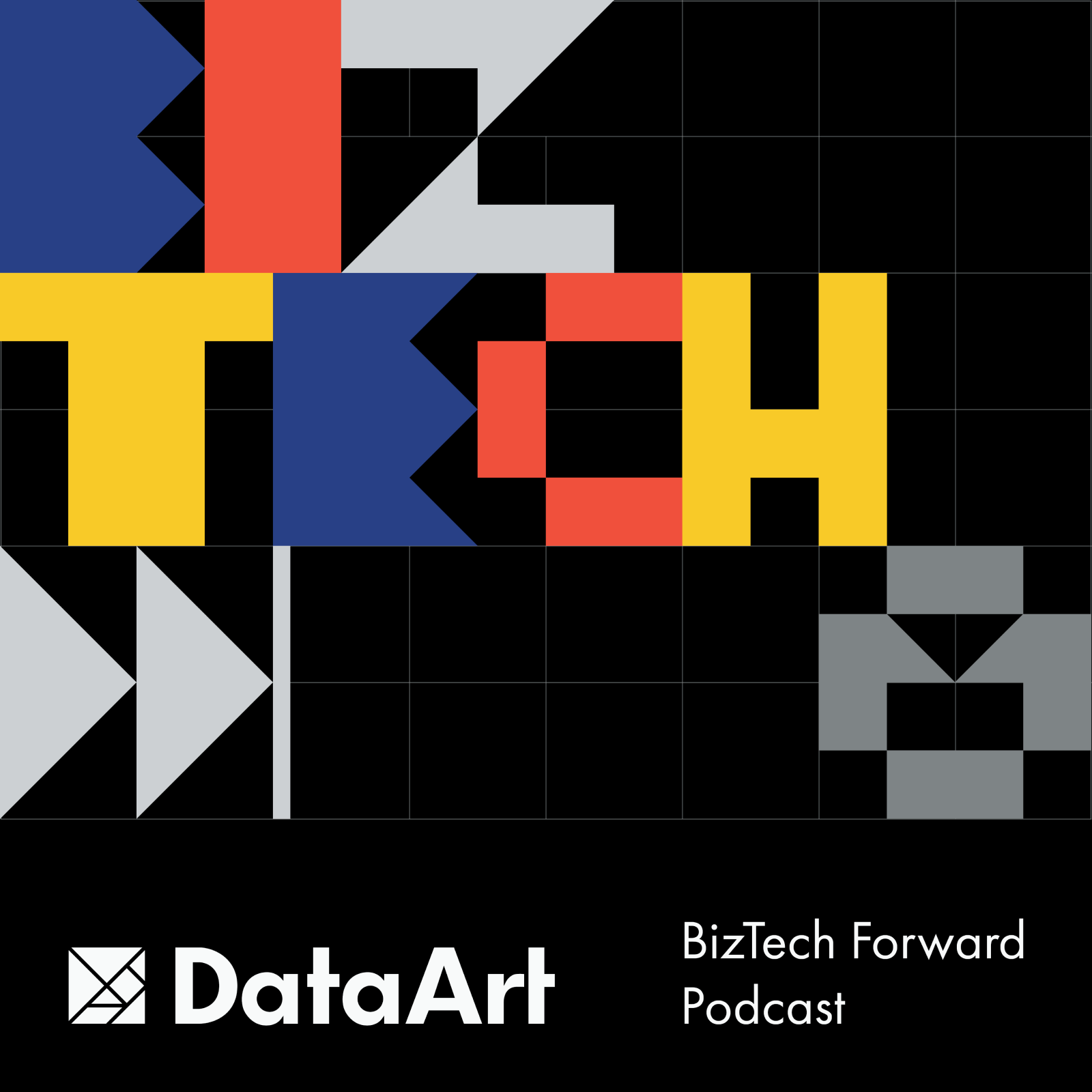
In this episode of BizTech Forward, Anni chats with Scott Rayburn, VP Marketing at DataArt, about how marketing has evolved with the rise of data and technology.
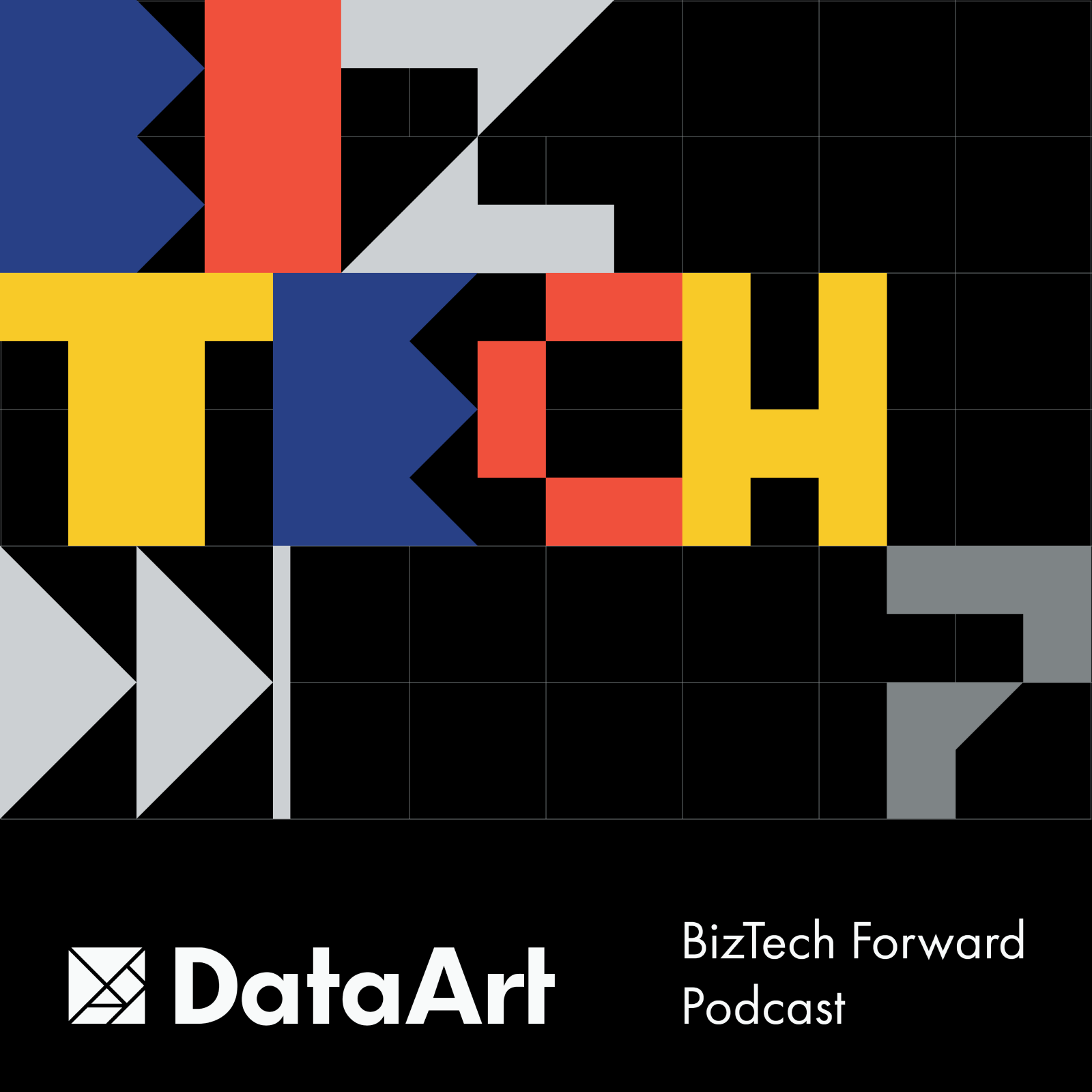
In this episode, Anni chats with Sheetal Kale, Head of DataArt India, about the country’s modern tech views, AI and data, IPO boom, and India’s gravitational pull in global decision-making.
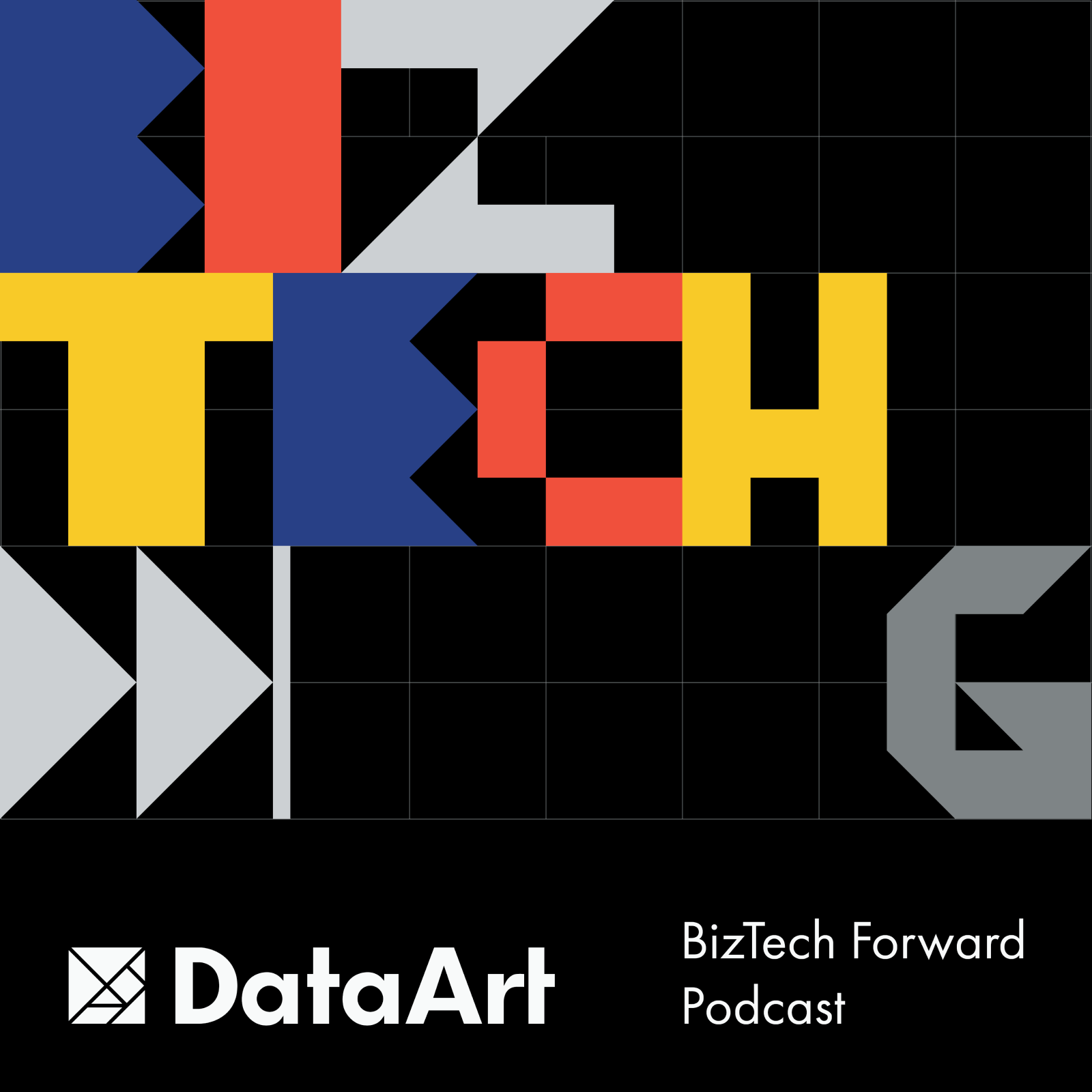
In this episode, we're joined by Tim McMullen, a true veteran in aviation tech, to discuss the latest aviation technology trends from the latest industry conferences and the future of aviation.
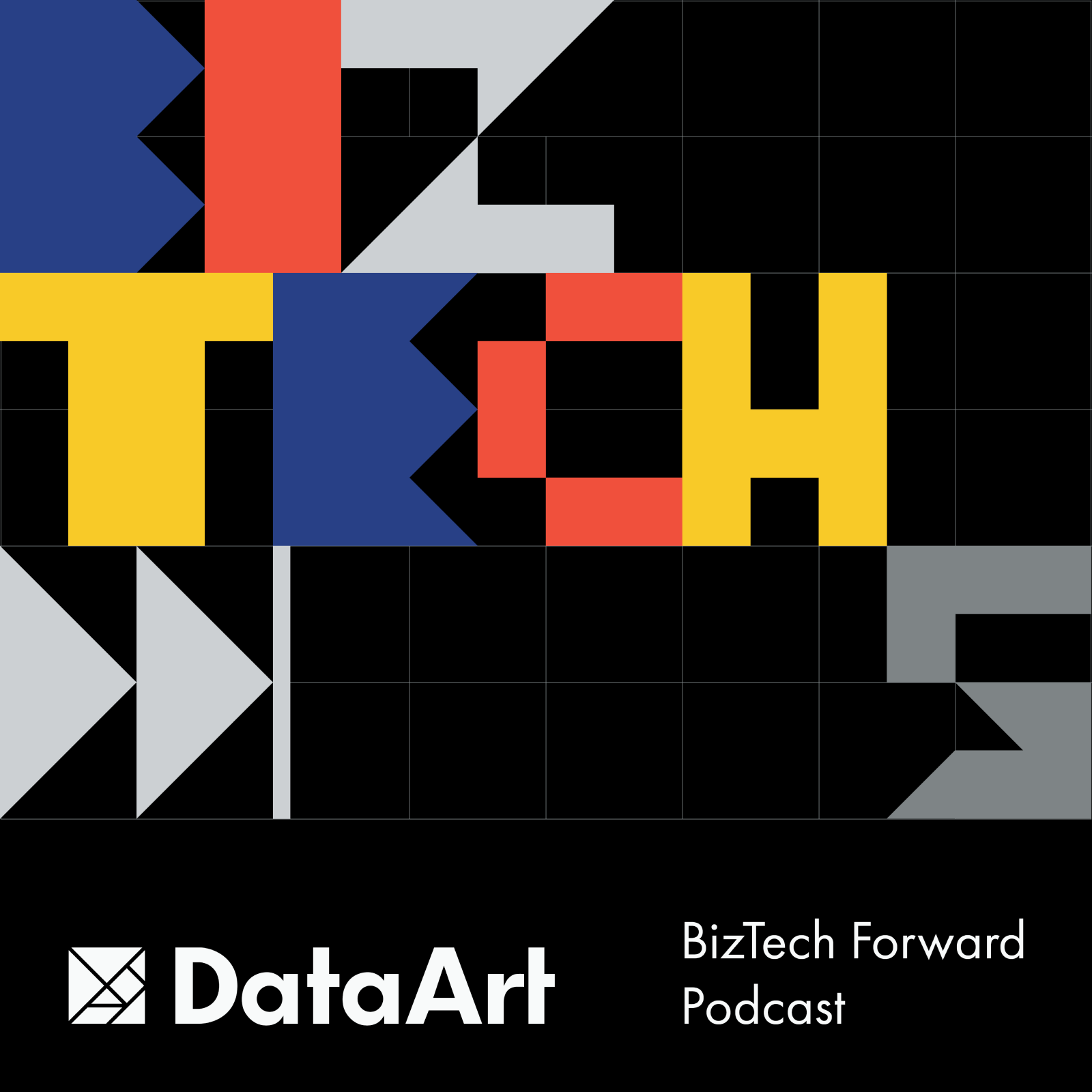
In this episode of BizTech Forward, Anni sits down with Anastasia Rezhepp, DataArt's Head of Design Studio, to talk about the evolution of design processes in the world of UX.
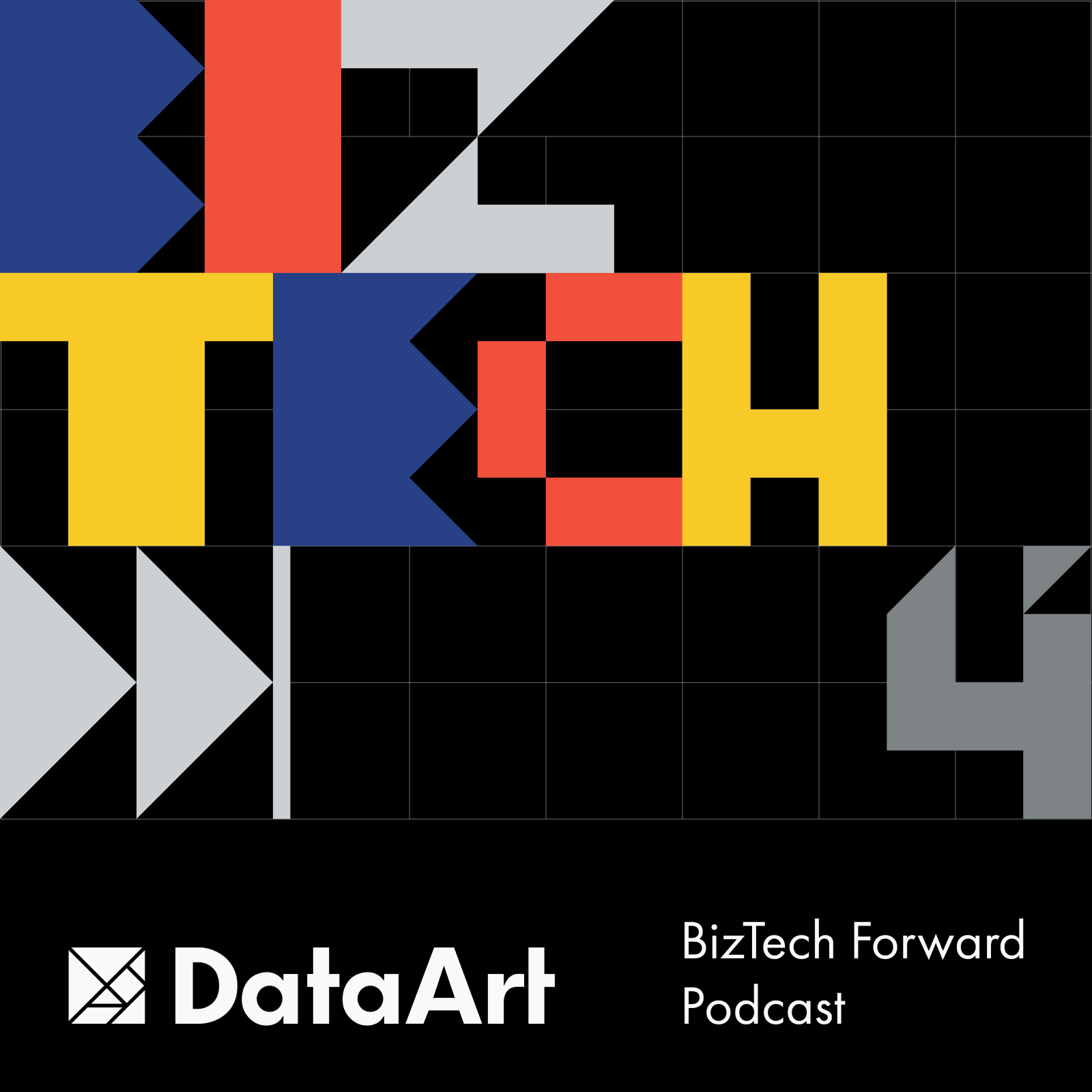
In this episode of BizTech Forward, we chat with Yuri Gubin, Chief Innovation Officer at DataArt, about why data quality is critical for AI success.

In this episode, we chat with Anna Velykoivanenko, Global Employer Branding Director at DataArt, about the perfect blend of technical know-how and human-centric skills.
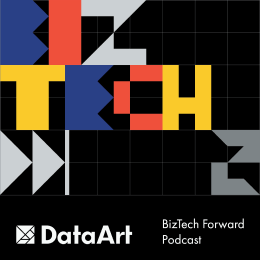
In this episode of BizTech Forward, Anni from DataArt’s Media Relations team chats with Alexei Miller, Managing Director at DataArt, about how businesses can truly measure the value of their IT investments.
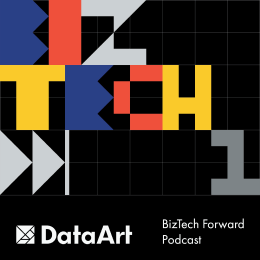
Join Anni Tabagua as we kick off our very first episode with a fascinating topic: AI in Automotive. Our guest is Dmitry Bagrov, the Managing Director of DataArt UK!
We Want to Hear From You!
Reach out to us with any comments, feedback, and questions by filling out the form.

Thank you for contacting us!
We will be in touch shortly to continue the conversation.








